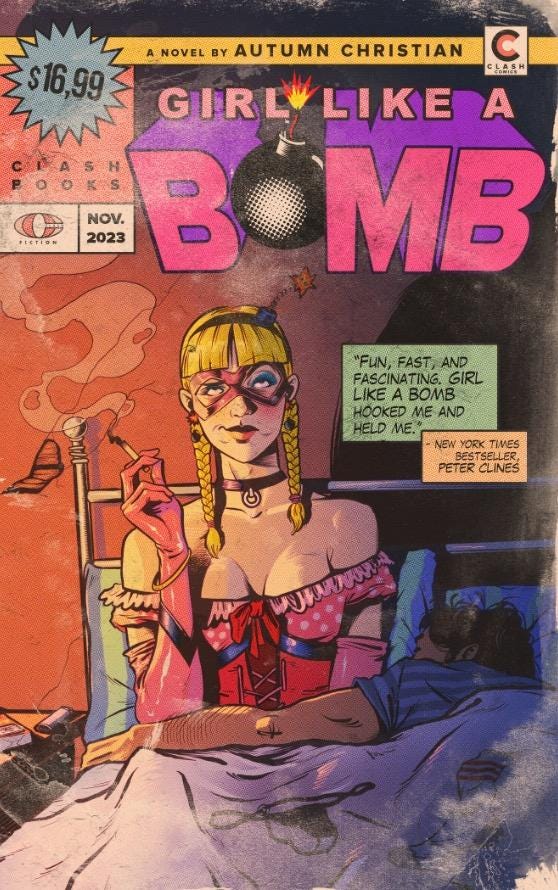Words that whip across your spine
Writing as work and inspiration
The work
Writing is hard work. A clear sentence is no accident. Very few sentences come out right the first time, or even the third time. Remember this in moments of despair. If you find that writing is hard, it’s because it is hard.
-William Knowlton Zinsser
Writing is work.
It's true that what separates the professional from the amateur is the amount of work put into writing. That's not a secret, and yet it doesn't stop people from trying to find a secret.
There's an entire industry that preys on the amateur, the reluctant, the novice, the overworked, the fearful. There's a lot of money to be made by trying to convince people there is a way to escape the pain of work. Workshops and seminars and writing courses and books about how to write a bestseller and special writing programs and expensive pens and leather-bound journals and book clubs and coffee mugs that say “writer” on them. Those things can be useful, but sometimes they can set people on a treadmill of wasting time and money in pursuit of a shortcut.
There is no shortcut. To work at anything is to set your mind and body to an intention. It's to say that you are sacrificing every other potential possibility in the moment to pursue this one thing. Work is friction. Its seeking to transform something that in turn, resists the transformation.
And if you set down and put in the work to write, you often find out that you're not as good as you thought you were. People often tell me that they stopped writing because what appeared on the page never reflected their imagination.
Your imagination is an infinite landscape of possibility, a playground of dreams and bone, fused in fantasy and ancient neural pathways. Your imagination is probably the closest you'll ever get to understanding what it'd be like to be a god.
A couple of words on a page aren't going to compare.
And that's a big part of why sitting down and doing the work can be so difficult. You get to see your boundaries and limitations. You get to feel the exhaustion. You experience the frustration of words that appear limpid and unappealing when spoken aloud.
You wanted to be someone special, to write words that whip across someone's spine, but there's the evidence that you're not as special as you thought you were. Maybe your imagination is fantastic, but you've proven yourself to be a poor conduit.
You aren't a literary god, after all. You're just a heel. People might read your work and laugh that you dared to believe in yourself. You’re only human.
But this isn't a reason to despair. Because once you put in the work it gives you a pathway to improvement. It creates boundaries of understanding. Your flaws can become the light that shows you where to go, and how to become better.
You'll never get anywhere if you don't put in the work. It's easier to go to parties and tell girls with slanted eyeliner that you're a writer, that you're working on a novel, make jokes about how alcohol is your inspiration. You don't have to be humbled and beaten and bored.
Yet if you practice patience and sacrifice and sit down to work and keep showing up, maybe your dreams could be more than dreams.
Purpose comes with pain. Even professional writers try to find ways to procrastinate, to perambulate around the center of their mind and avoid the truth inside them.
Yet it's the only way to go.
The Inspiration
Don't bend; don't water it down; don't try to make it logical; don't edit your own soul according to the fashion. Rather, follow your most intense obsessions mercilessly."
-Franz Kafka
Writing comes from inspiration.
Even before I've finished writing this sentence, I can feel its pulse on my tongue, in the tips of my fingers, a hidden fire waiting to burst out of me.
What would it be like to live your life as one long spiritual experience?
In the moments when I melt into the story and cease to exist, I can feel another entity moving through me. It's a sublime transaction with eternity. I am the grass covered floor upon which satyrs walk. I've got an angel at my throat. I forget what it's like to be afraid to die, because death isn't real. Only that moment is real.
You'd never believe that relinquishing your soul could feel that good.
I used to treat writing like a 9-5 job. I'd sit down at my computer and pound out the words whether or not I understood what I was trying to say or where I was going. I was primed on NanoWrimo, where the goal is to write a novel in a month, no matter how terrible it was. “You can edit later,” was the usual mantra.
In the years before I learned to let inspiration guide me, I wrote a lot of shitty novels. I'd pound out some garbage that wasn't even editable just so I could convince myself I was being productive.
I had to learn to step away from the computer and walk away from the problem, let life breathe through me, remind myself that I am a part of nature and writing is not just a battle with the self, but a communication with it.
I've starved myself and gone without sleep and ran for miles and waded out into cold water with all my clothes on just so I could feel the inexpressible pull of transcendence, that moment when I remember why I write in the first place.
Not because writing is a job. I've had plenty of jobs before. None of them made me want to taste blood on the tip of my tongue, to wrap myself up in the effervescence comfort of words, a protection from when demons reached out of the dark and took my wrists in their hands.
None of my other jobs make me want to dance in a place without a ground to protect me.
Oftentimes only when I allow myself to have that experience can I return to the page and see what I want to write with renewed clarity.
Writing is not work in the usual sense. You are not a factory worker or a plumber. It is not something you can grind at with your rational brain, like a math equation or an intricate puzzle. You can't approach it the same way every time and expect the same quality of output.
So many people avoid the term “artist” because it carries a weighted sensibility. In the right company it can seem stuffy and pretentious, sentimental or bourgeoisie. Maybe it means you think too highly of yourself, maybe your work isn't actually that good. So, you think, better to avoid the word and its connotations entirely, lest you be thought of as some kind of clown.
But a writer is an artist. An artist works to pull forms out of the darkness and give them shape. They give names to foreign objects. They attempt to express the inexpressible. It requires communication with a deeper part of the self that cannot be put into a rote set of instructions.
A million monkeys on a million keyboards can't reproduce the works of Shakespeare, and you'll never write something great no matter how hard you work, if you don't carry a spark of the divine within you.
The second edition of Girl Like A Bomb is now available for pre-order! Grab it either on Amazon or on the CLASH website.




I have nothing to add but one infinite yes. Such a pleasure, as always, to watch your words glow.
Yes, I agree about workshops being a form of procrastination, and everything else you wrote about as well. For me just writing as much as I can, putting in the practice, and reading about writing seems to have the biggest impact.